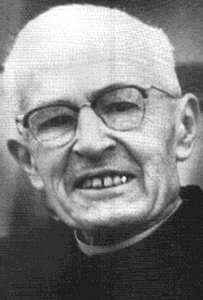What is Pope Francis encouraging us to do now? His “apostolic exhortation”–called Evangelii Gaudium (The Joy of the Gospel) is a new document (c. 48, 000 words) in which he outlines a bold, new vision of how to be disciples of the Lord, how to be living members of the Catholic Church. The joy here indicates the encounter (the meeting) with the living God, especially in the person of Jesus. Evangelii Gaudium is not an easy document to boil down to a few key points. Therefore, you will need to spend time reading, studying and praying with the document. This is principally true because what is proposed in this document is a new discernment in the truest way possible: according to the Gospel, tradition and the received wisdom of the saints. The papal invitation to each of us is to “recover the original freshness of the Gospel,” finding “new avenues” and “new paths of creativity,” without boxing God in “dull categories.” What is exactly true is that Francis gives us a work that is thought-provoking, surprising and challenging. Evangelii Gaudium is nothing if not very interesting. The status quo is not part of the pastoral plan of any Church guided by the Paraclete.
I go back to what I consider to be the three key ideas proposed by the newly elected Roman Pontiff when he preached at the Mass with the Cardinals: the Christian is to journey, to build and to confess the Body of Christ. His other homilies and addresses have had some form of this triad all aiming at truly living our new humanity given to us in baptism, confirmed in the Holy Spirit and nourished by the Eucharist.
Recently, Father Julián Carrón gave to the members of Communion and Liberation a mini retreat in which he spoke of the new knowledge, the wisdom of the Spirit given to us. For him, it is a new way of living and thinking as a friend of Jesus. But our friendship is not limited to exchanging pious platitudes, it is a true companionship, a way of seeing life, a communio. This way of living with the eyes of faith, it is a faith born of the gaze Jesus had for Andrew and James, Mary Magdalen or Zacchaeus, it is the very same gaze Jesus has for us and that we ought to have for others. Too often have forgotten what it is to live in the freshness of the Good News and hence we now need to first to work our problems of faith by addressing the problem what it means to be living this faith as a knowledge of who Jesus Christ is, and what it means to follow Him.
So, what does the Pope propose as his vision for the Church?
Francis wants a Church that is a joyful community of faith ready to face the world as it is, not through the lens of nihilism or fearfulness of what may or may not be. There is always a bit of trepidation of the unknown or one’s meeting head-on of one’s opponents, and therefore, Evangelii Gaudium may be too challenging for some people. Remember the exhortation of Blessed John Paul and Pope Benedict at the very start of their pontificates: be not afraid! For the Pope blows open a perspective that looks the other way: “Pastoral ministry in a missionary key seeks to abandon the complacent attitude that says: ‘We have always done it this way.’” Traditionalism is killing Christian life. Just because we have done thus-and-such for 1000 years does not mean that it is good and healthy thing to do today.
One description of what it means to live anew…
Evangelization with joy becomes beauty in the liturgy, as part of our daily concern to spread goodness. The Church evangelizes and is herself evangelized through the beauty of the liturgy, which is both a celebration of the task of evangelization and the source of her renewed self-giving.
What Evangelii Gaudium conveys is that Catholics ought to be unafraid of new ways of proclaiming (the kerygma) the Gospel and new ways of thinking about the work of the Church in a way that is a total gift of self. Francis is not changing Church teaching but asking us to explore new forms of pastoral practice based on traditional teaching. We can cite as one example Francis affirming the Church’s inability to ordain women as Catholic priests, but he invites the Church to think about the place of women in the Church in new ways: “the possible role of women in decision-making in different areas of the Church’s life.” Ecclesial renewal and reform at any level is not going to be easy. Yet we have to strive to be renewed and reformed. The bishops with the priests, deacons and religious, for example, will have to ask the hard question of their personal conversion and their manner of living. Perhaps the episcopate in the USA will have to reassess the manner in which the bishops live. I think we are at the point that says, if the Jesuits and Dominicans do not start living their charism with mind of the Church and bishops and secular priests do not stop living like little princes, the laity will start voicing their opposition to the contraception of the vocation before the Church will be even more dismissed as irrelevant. We need for today a NEW St Charles Borromeo, a NEW Sts Benedict and Scholastica, a NEW Sts Ignatius and Sophie Barat, a NEW Sts Dominic and Catherine of Siena and a NEW Sts Francis and Clare.
We have already heard throughout the centuries of the deadly sins of preaching, catechesis, pastoral care, and liturgical praxis: “complacency,” “excessive clericalism,” and Catholics who act like “sourpusses”: it is described by the Pope as Christians whose lives are like “Lent without Easter.” (“Sourpusses” is in the official English-language translation.) All of these attitudes are considered roadblocks. Moreover, the Pontiff has little patience for people who “tempted to find excuses and complain.”
Clearly, there will be no alteration of the Catechism, dogmatic and liturgical and moral theology. Rather, Francis wants a new way of proposing the faith in Jesus as the Way, the Truth and the Life. Orthodoxy is not the big NO as some one want to say; it is about the beauty of living in a completely new way so as be saints on earth and in heaven. As such I am thinking of the groundbreaking work of Jospeh Ratzinger, Introduction to Christianity.
I have to ask myself, Do I have a fundamental and tender joy of living a life centered in Jesus Christ and focused on the hope of the resurrection? My experience tells me that in different periods of personal history I have lost a great deal of hope and joy in the resurrection, and the centrality of Jesus Christ in all of creation (cf. the papal homily closing the Year of Faith on 24 Nov.). But I have choice to live differently where the measure of life and faith is not me but the Lord.
Evangelii Gaudium is a discussion on joy as a requirement for evangelization and a treatise on the value and necessity of “personal dialogue,” a personal meeting of the other, and encounter with the Lord,; the personal approach is needed in extending an invitation to live differently; the faith is a way of knowing, a way of seeing, a way of loving God, others and ourselves.
The Pope restores to our human awareness the plight of those on the margins: the poor, the children, the elderly, the sick and otherwise neglected. Being formed by the Jesuits I heard about the Church’s “preferential option for the poor.” I was rightly taught that a Christian looks at another person as God sees them: “God’s heart has a special place for the poor.” We are not exhorted to open soup kitchens and social concern centers. We are asked to awaken our hearts and minds. Hence, we are not to give lip service saying that God loves the poor in a special way, and let someone else take care of the “problem.” People, whatever, their social-economic-religious status may be, each person has a God-given dignity. Here solidarity is the lens: how do I care and advocate for the poor, the elderly, the sick, etc.? Who has responsibility for the other person? The Pope tells us: “None of us can think we are exempt from concern for the poor and for social justice.” No bishop, priest, deacon, lay person, rich or poor, educated or uneducated can neglect the needs of another; for in the beggar we see ourselves begging before Christ as Dives did.
The Apostolic Exhortation offers critique of the “idolatry of money” and an “economy of exclusion” as tyranny. For Francis, therefore it ought to be the same for all us, we need to live in an economy of communion (see the work of the Focolare Movement for more on this idea). Francis writes, “The Pope loves everyone, rich and poor alike, but he is obliged in the name of Christ to remind all that the rich must help, respect and promote the poor. I exhort you to generous solidarity and a return of economics and finance to an ethical approach which favors human beings. What’s clear to me, caring for the marginalized means addressing the structures that keep people at arm’ length: “The need to resolve the structural causes of poverty cannot be delayed.” This is a call to arms now. The Church is for and of the poor. Period.
Do not be fooled: the hard work of personal conversion is absolutely necessary before we set out on changing things that are perceived to be broken. We cannot point the fingers at others without doing the hard work of spiritual conversion ourselves. Change for the sake of change is not a Catholic thing to do. You can change the right structures for the wrong reasons. The matter is: “Nobody can go off to battle unless he is fully convinced of victory beforehand.” Is Christ the center of our life? We are looking for a revolution of tenderness.
Evangelii Gaudium will be received by some as boilerplate clap-trap that one would expect in a document on the “New Evangelization,” but that would be too reductionistic, even too pessimistic an evaluation; Pope Francis identifies areas of challenge, a hardening of the arteries, and he desires a healing, he wants to see real, visible change in me, and in structures of the Church and civil society. But how is this possible? Francis tells us that evangelization and the life of the Christian is “constantly renewed experience of savoring Christ’s friendship and his message.”
Follow what the Pope says with this in mind: “embark upon a new chapter of evangelization marked by this joy, while pointing out new paths for the Church’s journey in years to come”: these new paths can only be walked if we meet the Lord. These paths are fruitful if live in communion with others. The companionship of the Church is the place of our true freedom.
May Mary, Mother of the Living Gospel, “Star of the new evangelization, help us to bear radiant witness to communion, service, ardent and generous faith, justice and love of the poor, that the joy of the Gospel may reach to the ends of the earth, illuminating even the fringes of our world” help us on our journey.
 Thanks to Joan Frawley Desmond of the National Catholic Register we can read a recently published interview, “‘Magnificat’: Introducing the Liturgy to Christian Laity for 15 Years,” with Dominican Father Peter John Cameron, Editor-in-Chief of Magnificat.
Thanks to Joan Frawley Desmond of the National Catholic Register we can read a recently published interview, “‘Magnificat’: Introducing the Liturgy to Christian Laity for 15 Years,” with Dominican Father Peter John Cameron, Editor-in-Chief of Magnificat.


